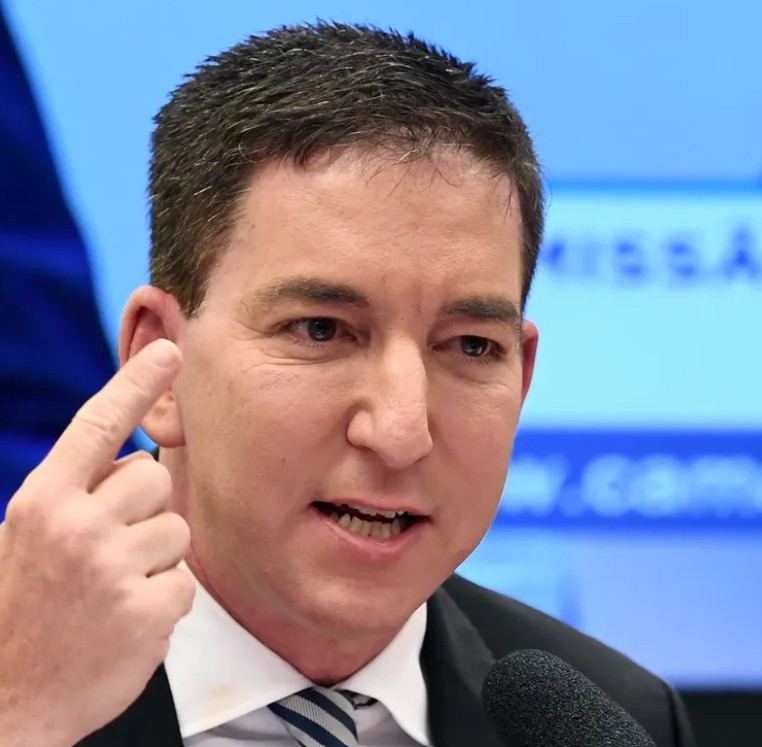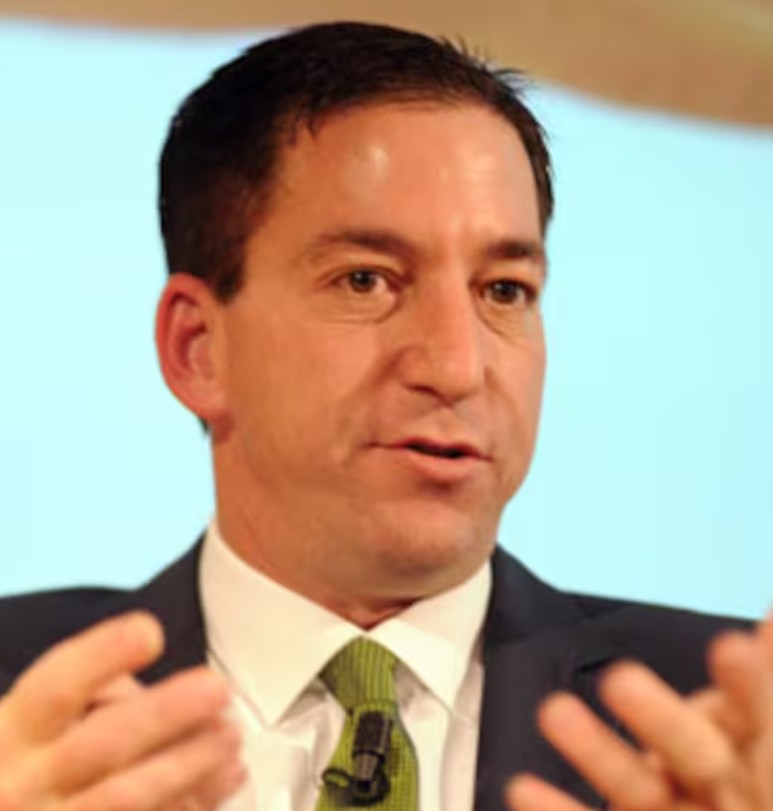Glenn Greenwald Video and Public Reaction
Glenn Greenwald, a well-known investigative journalist and political commentator, has never shied away from controversy. Whether it’s his reporting on the National Security Agency’s mass surveillance programs or his contentious takes on U.S. politics, Greenwald’s name often appears in heated debates across the political spectrum. However, in a recent viral video that spread like wildfire across social media platforms, Greenwald found himself at the center of public ridicule for what many described as “ridiculous antics” and “embarrassing behavior.”

The video in question shows a side of Greenwald that some followers found entertaining, while others viewed it as a fall from journalistic integrity. In this article, we will explore the nature of the video, public and media reaction, Greenwald’s own response, and what this incident means for his personal brand and credibility in the ever-evolving world of political journalism.
Contents
Background on Glenn Greenwald and Video
To understand the impact of the video, it’s important to know who Glenn Greenwald is and how he rose to prominence. Greenwald is a Pulitzer Prize-winning journalist who gained international recognition in 2013 for publishing a series of reports based on classified documents leaked by former NSA contractor Edward Snowden. These revelations exposed the extent of global surveillance operations conducted by the U.S. and its allies, changing the public discourse around privacy and government oversight.
Uncensored full leaked video of Glenn Greenwald
Greenwald later co-founded The Intercept, a news outlet dedicated to adversarial investigative journalism, though he eventually parted ways with the organization due to editorial disagreements. Throughout his career, Greenwald has maintained a reputation as a fiercely independent thinker, often clashing with both conservative and liberal commentators. But this same independence has also led to growing criticism, especially as he became more active on platforms like Twitter, where his posts sometimes veer into provocative territory.
The Viral Video: What Happened?
The controversy began when a video featuring Greenwald surfaced on social media platforms such as Twitter (now X), Reddit, and TikTok. The video, reportedly taken during a livestream or podcast appearance, showed Greenwald engaging in exaggerated gestures, shouting over co-hosts, and making facial expressions that some users found comically dramatic or “clownish.”

While the video may have been intended to express passion or conviction, it was quickly clipped, edited, and shared out of context stripped of any substantive discussion that may have occurred before or after. Without that context, Greenwald’s behavior appeared over-the-top and, to many, downright absurd.
One particularly mocked moment showed him pounding a desk while speaking loudly in Portuguese an act some viewers called “performative rage” or “internet theatrics.” Within hours, hashtags such as #GreenwaldMeltdown and #Clownwald began trending.
Public and Media Reactions
Public reaction was swift and divided. On one side, critics accused Greenwald of acting like a caricature of himself suggesting that his performative outburst undermined his credibility as a serious journalist. Memes, gifs, and parody videos circulated rapidly, some overlaying circus music or cartoon sound effects over the original footage.
Conversely, his loyal supporters defended him, arguing that the clips were misleading and unfairly mocked. They pointed out that Greenwald’s passion has always been part of his persona and that the video was being taken out of context by people with political motivations.
Mainstream media outlets took varying approaches. Some progressive commentators on YouTube and independent news shows mocked the video as evidence of Greenwald’s descent into media self-parody. Conservative outlets largely ignored the event, while centrist publications treated it as a curious episode reflective of the increasing tendency of journalists to blend into entertainment personas.
Glenn Greenwald’s Response
Greenwald did not stay silent. Within 24 hours of the video gaining traction, he took to Twitter to address the controversy. In a lengthy thread, he criticized the “dishonest editing” of the video and accused detractors of manufacturing outrage to distract from his recent exposés on political corruption in Brazil.
He wrote, “If you’re spending your day clipping livestreams to make journalists look like fools instead of addressing the actual content we’re discussing, you’re not interested in truth you’re interested in mockery.”
He also shared the full version of the video, urging followers to watch the context in which his outburst occurred during a heated discussion about censorship and political suppression in Latin America. While his tone remained defiant, some observers felt the damage was already done.
Implications for His Public Image
The incident marks another turning point in Greenwald’s complex relationship with his audience and peers. For some, it confirmed their growing suspicion that Greenwald has drifted from hard-hitting investigative journalism toward a more theatrical, opinion-driven form of media engagement. Critics argued that his actions risk diminishing the gravity of the causes he once championed particularly when they appear more like performance than principled outrage.
On the other hand, Greenwald’s defenders saw this as an extension of his longstanding battle against establishment media and political elites. They argue that if a journalist is passionate, emotional, or even combative, it should not automatically undermine their credibility.
Nonetheless, the optics matter. In a media landscape where image is nearly as important as information, Greenwald’s video gave ammunition to those who view him as more provocateur than journalist. It also raised questions about whether the pressure of constant public engagement via livestreams and social media is pushing serious commentators into performative extremes.
Broader Reflection on Online Personas
This incident is emblematic of a broader trend in journalism: the merging of news reporting with internet persona-building. In the age of social media, journalists are increasingly expected to be entertainers, influencers, and activists all while maintaining the ethics and credibility of traditional reporting.
Greenwald is not the first, nor will he be the last, to struggle with that balance. From figures like Tucker Carlson to Rachel Maddow, the line between commentary and performance is becoming increasingly blurred. The viral nature of Greenwald’s video speaks to how easily moments of genuine emotion can be repackaged as spectacles.
Moreover, the ecosystem of viral outrage often rewards extremity. A calm, well-reasoned segment may get a few thousand views, while a dramatic outburst regardless of its substance can reach millions. This trend poses serious challenges for the future of responsible journalism.
The viral video of Glenn Greenwald has stirred laughter, concern, and debate across the internet. While some see it as a moment of human passion taken out of context, others regard it as evidence of a respected journalist succumbing to internet theatrics.
Regardless of where one stands, the incident underscores the difficulty of maintaining integrity and seriousness in an age dominated by visual snippets, virality, and spectacle. Greenwald’s response shows he’s not backing down, but whether the public sees this as resilience or defiance may ultimately shape how his legacy evolves.
As journalism continues to intersect with online performance, moments like this remind us how fragile the line is between credibility and caricature.
Hot News -Valeria Marquez Stream Video and Viral Valeria Márquez Tiktok
Alejandro González in Cancun Incident Video and Fotos
Robert Godwin and Steve Stephens video: Tragic Death
FSU Shooting Starbucks Video and Footage of FSU Shooter Goes Viral
Ry Desabato Video and Privacy in the Digital Age
Scuba Girl ASU Video and Truth Behind the Viral
Jordan Montana Video at the Controversy and Impacts

